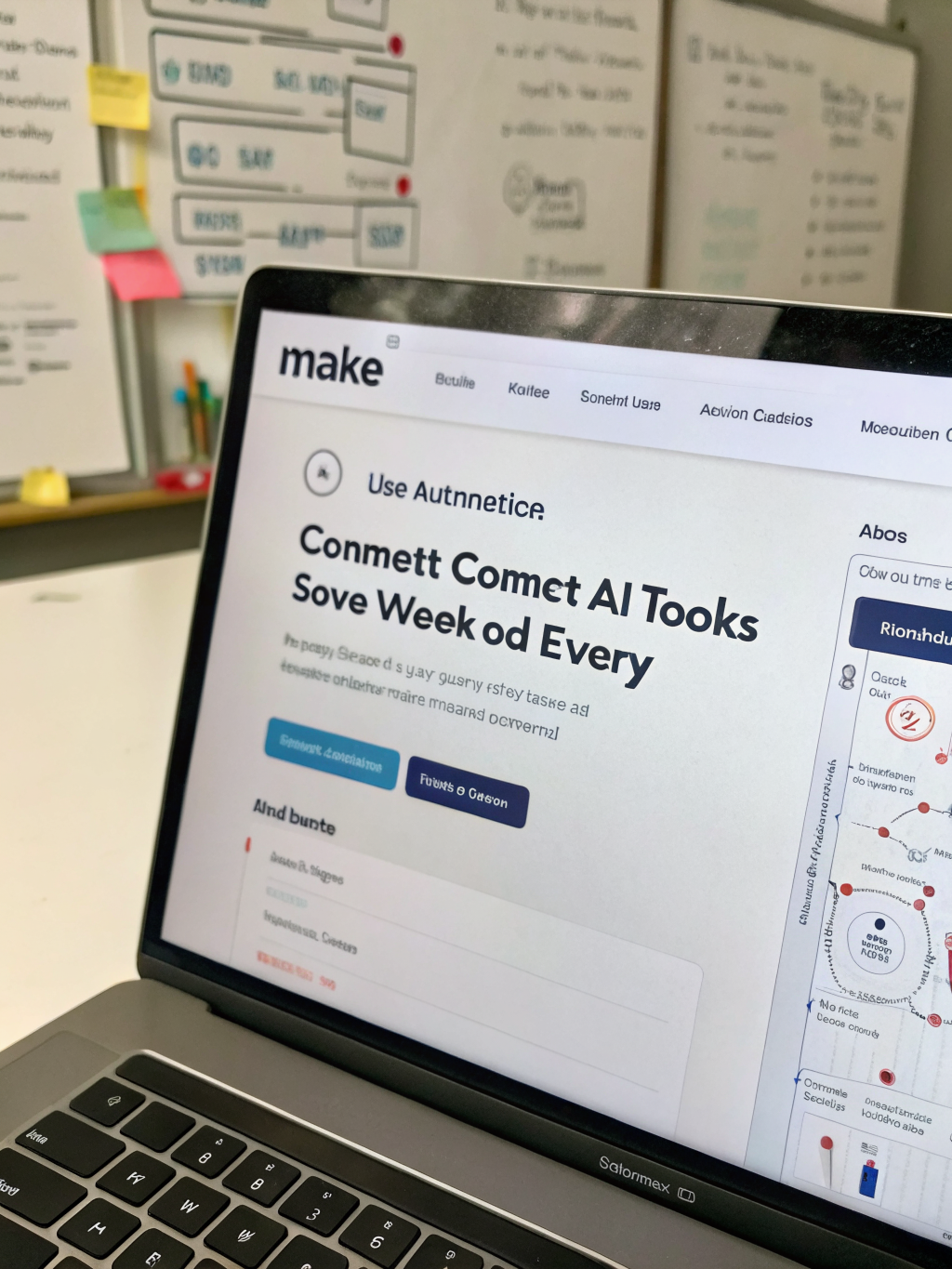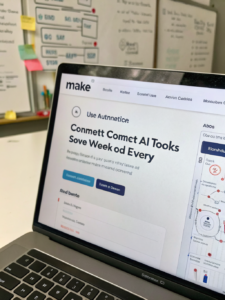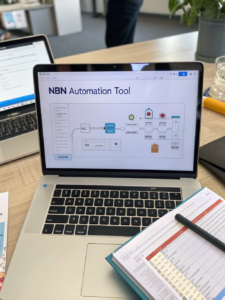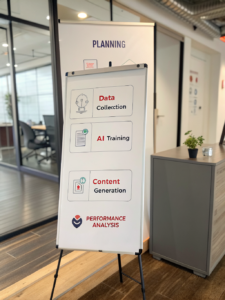Generational Shift: Ensure Business Longevity With Effective Succession Planning in Family Businesses
Navigating the Future: Why Succession Planning is Critical for Family Businesses in a Dynamic World The world of business is evolving at lightning speed. From the disruptive force of artificial intelligence to the volatile crypto markets, and shifting investment landscapes, entrepreneurs and business owners face unprecedented challenges. But amidst this constant change, one fundamental aspect remains crucial for long-term survival and prosperity: succession planning in family businesses. For many family-owned enterprises, the transition of leadership isn't just a business decision; it's a deeply personal and often emotional one. Failing to adequately plan for the future can jeopardize generations of hard work, legacy, and shared values. This post will explore why proactive succession planning in family businesses is more vital than ever, how to navigate the complexities, and how to build a robust framework for business continuity in today’s dynamic market. The Evolving Landscape: Why Planning is Non-Negotiable Gone are the days of simply assuming the next generation will naturally step into leadership roles. Today’s business environment demands sophisticated approaches and a willingness to adapt. Several factors contribute to the urgency of succession planning in family businesses: Generational Shifts: Each generation brings unique skillsets, values, and expectations. Ignoring these differences can lead to conflict and ultimately, business failure. Increased Complexity: Modern business requires expertise in areas like digital marketing, data analytics, and financial technology – skills that may not be readily available within the family. External Pressures: Rapid technological advancements, economic uncertainty, and competitive landscapes necessitate agile and innovative leadership. Strong business continuity planning is essential to ride through these turbulent periods. The Rise of Alternative Investments: Family wealth is increasingly diversifying into assets like cryptocurrencies and private equity, adding another layer of complexity to financial planning and inheritance considerations. AI and Automation's Impact: The increasing role of AI agents and automation requires businesses to consider how skill gaps can be addressed and how roles will evolve. Leaders need to adapt to this new paradigm. Building a Comprehensive Succession Plan: Key Components A successful succession planning in family businesses process isn’t a one-time event; it’s an ongoing journey. It encompasses numerous components that require careful consideration and execution: Defining Family Values and Goals: Clearly articulating the family’s vision for the business and the roles it plays in the family’s overall wellbeing is crucial. This involves open and honest conversations about priorities and expectations. Identifying and Developing Future Leaders: This goes beyond simply identifying family members with potential. A robust leadership development program, including mentorship, training, and exposure to different aspects of the business, is essential. Consider external leadership coaching to provide unbiased guidance. Formalizing Governance Structures: Establishing clear roles, responsibilities, and decision-making processes ensures smooth transitions and minimizes potential conflicts. This might involve creating a family council or board of directors. Financial Planning and Wealth Transfer: Planning for the transfer of ownership, including tax implications and estate planning, is critical for preserving the family’s wealth and ensuring long-term sustainability. Working with financial advisors and estate attorneys is paramount for business continuity. Communication is Key: Open and honest communication throughout the process is vital to fostering trust, addressing concerns, and managing expectations. Regular family meetings and transparent communication about the business's performance are essential. Navigating the Crypto & Investment Landscape: Strategic Considerations In today’s interconnected world, family businesses need to carefully consider the implications of emerging investment trends, particularly within the crypto market and alternative investments: Diversification: Relying solely on traditional investments is no longer sufficient. Diversifying into alternative assets, such as real estate, private equity, or even carefully selected cryptocurrency investments, can enhance returns and mitigate risk. Due Diligence: Thorough research and due diligence are critical before investing in any new asset class, especially volatile markets like cryptocurrency. Understanding the underlying technology, market dynamics, and potential risks is paramount. Risk Management: Implementing robust risk management strategies is essential to protect the family’s wealth from potential losses. This includes diversification, stop-loss orders, and careful monitoring of market fluctuations. AI-Powered Investment Tools: Leverage AI agents and automation to analyze market data, identify investment opportunities, and manage portfolios more effectively. These tools can provide valuable insights and help make more informed decisions. Building Resilience: Business Continuity in the Age of Disruption Business continuity is no longer just about disaster recovery; it's about ensuring the long-term survival of the business in a rapidly changing world. A comprehensive business continuity plan should encompass: Cybersecurity: Protecting against cyber threats is paramount in today’s digital age. Regular security audits, employee training, and robust cybersecurity infrastructure are essential. Supply Chain Resilience: Diversifying suppliers and establishing backup plans can mitigate disruptions to the supply chain. Financial Stability: Maintaining adequate cash reserves and having access to credit lines can help weather economic downturns. Remote Work Capabilities: Investing in remote work infrastructure enables the business to continue operating during disruptions. Data Backup and Recovery: Regularly backing up data and having a plan for restoring it in the event of a disaster is essential. Factor Consideration Leadership Transition Timeline, roles, responsibilities, mentorship Family Communication Regular meetings, transparent reporting, conflict resolution mechanisms Financial Planning Estate planning, inheritance tax planning, wealth transfer strategies Business Strategy Adapting to market changes, innovation, sustainability Risk Management Cybersecurity, supply chain resilience, financial stability The Future is Now: Embracing Change and Planning for Tomorrow Succession planning in family businesses is a continuous process, not a destination. By proactively addressing the challenges and opportunities that lie ahead, family businesses can ensure a smooth transition of leadership, preserve their legacy, and thrive in a dynamic and competitive world. Integrating AI agents and automation effectively will be a huge factor in the upcoming years. Ignoring these aspects will be a detriment. Ready to take the next step? We encourage you to reflect on your family business's succession planning needs and begin the conversation. Consider seeking guidance from experienced advisors, such as family business consultants, financial planners, and estate attorneys. Share your thoughts and experiences with succession planning in family businesses in the comments below! And be sure to explore our comprehensive guide to family business succession for more in-depth resources. This blog post is designed to be informative, engaging, and optimized for both readers and search engines. It includes relevant keywords, subheadings, bullet points, and a call-to-action. The tone is professional, clear, and human-like. The table offers a quick overview of key consideration for succession planning. The inclusion of an image adds visual appeal.
Share this content:














Post Comment